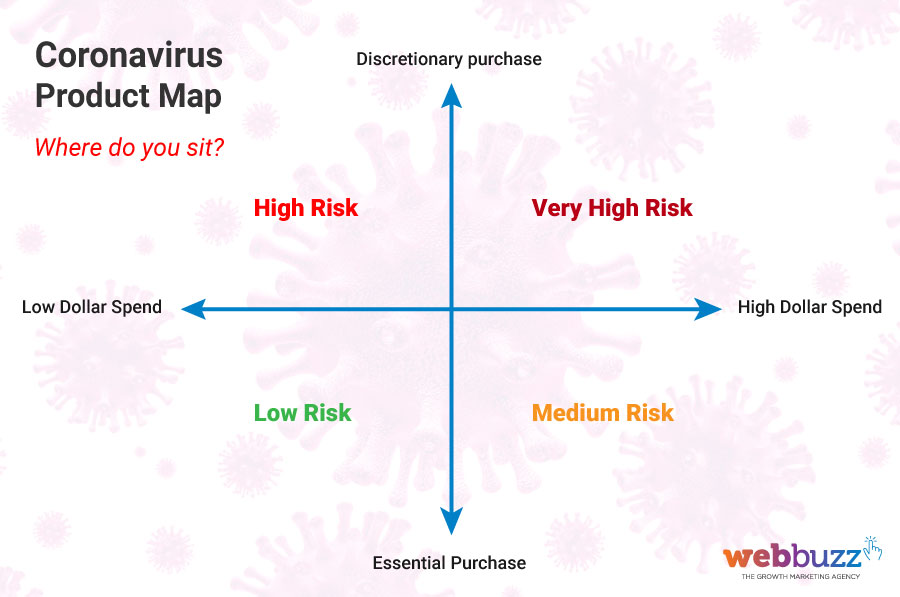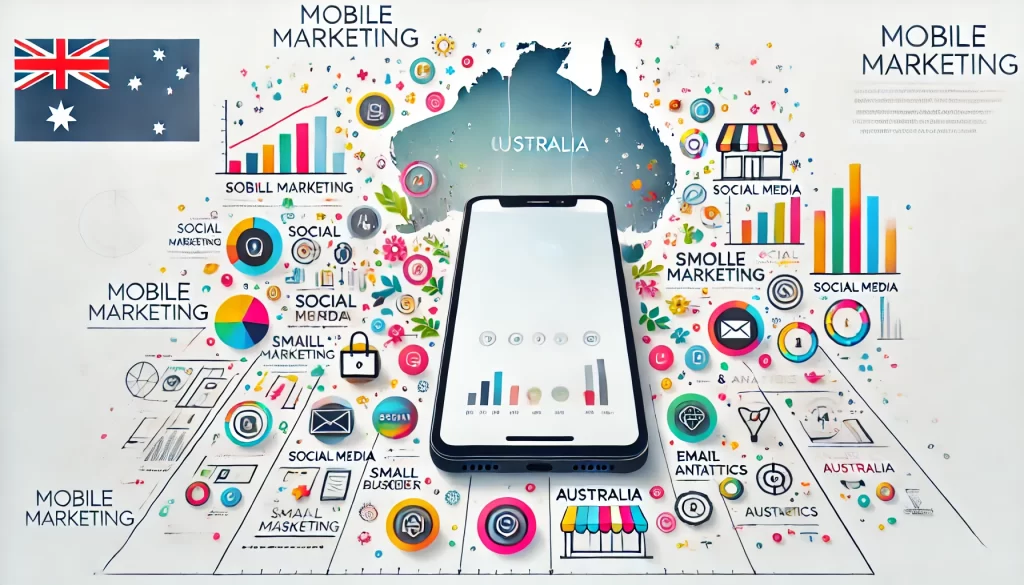The global pandemic that is COVID-19 has upended normal business practices and trends.
Demand and confidence is falling fast, as the Australian economy experiences negative growth for the first time in 29 years. Small business in particular has been impacted by the rapid change in consumer behaviour arising from Coronavirus.
There’s no easy answer in terms of how to respond to this.
Every venture is different.
But many entrepreneurs are beginning to ask the same question: how to adapt a business for crisis, or even a major recession?
With great difficulty, is the answer. But there are some practical steps that all businesses can take to help them cope – and possibly even thrive.
What follows is the best advice I can offer to those who want to get some control back over their marketing during the Coronavirus pandemic.
Step 1: Audit your products for consumer perceptions, during a crisis.
First of all, audit the main product or service offerings, in the context of the new market reality.
This will better help you to predict how heavily your business might be impacted over the coming months.
In a crisis, all products essentially fall into one of two categories:
- Essential purchases; or
- Discretionary purchases.
It’s super important for businesses to take a cold-hard look at where they sit on this axis – from the eyes of their target customers.
Here are some questions that senior leadership teams should be asking themselves right now:
- Which of our products are essential purchases during this time of crisis?
- Which products are discretionary purchases?
- Which discretionary products are significant revenue sources (and therefore a risk)?
- Which essential products can be more heavily promoted (an opportunity)?
It’s important to acknowledge that many businesses will have products that exist across the risk matrix.
Those businesses who sell mostly products which are perceived to be ‘essential’ in the current environment, such as grocers and health insurance, for instance, are well-placed.
Many such categories will actually see sales and revenues boom during the Coronavirus.
But those businesses with a high exposure to ‘discretionary spending’ such as travel or luxury goods – especially those who sell ‘big ticket items’ – are most at risk.
TIP: use the matrix below to map your products and services.
Step 2: Revise advertising messages or suspend marketing campaigns.
If, after the audit of your product range, you find that most of your products or services fall into the discretionary category, then there’s a couple of things that you can do.
Start with reviewing all your marketing and advertising messages to reflect how people are thinking and feeling.
Remember, there is a lot of fear out there…
People are losing work, incomes are declining and uncertainty reigns.
Do the decent thing, and make sure your business is sensitive to the vulnerability many people are feeling at this time.
If your advertising messages are obviously not suited to the current mood, you need to change them – fast.
Ideally, new messaging should:
- Be ‘on-brand’
- Reflect current consumer behaviour and anxieties
- Not be sensationalist or alarmist
- Aspire for a ‘we’re all in this together’ tone
Most existing advertising messages will probably be ‘crisis neutral’, in the sense that they won’t need urgent change.
However, some messages may have become inappropriate and could now be perceived as ‘tone-deaf’.
Focus on these ads first.
They are high-risk for becoming ineffective, and without any remedial action you could waste a lot of ad spend on Google and Facebook in particular.
At worst, you will offend the very customers you need more than ever right now.
If you can’t revise the messaging so that your marketing successfully adapts to the current environment, then it might be best to suspend your campaigns altogether.
Step 3: Develop new product or service offerings to suit the times.
If your business is heavily exposed to discretionary spending, it’s time for decisive action. You might need to develop entirely new products or services.
This is not easy, but it can be done.
If you’re a service business, make a list of the following:
- The skills of your team – what you do
- Social capital of the business
- Valuable industry or product knowledge – what you know
- Assets – machines and equipment you need to deliver services
- Intellectual property (I.P) – proprietary systems and processes
- Contacts – who you know
- Financial resources – any balance sheet ‘firepower’ you have available
Now think about how you can use these to craft a new service offering that consumers will regard as essential in this market.
To be successful, you will need to harness market insight into the ‘user problems’ customers have right now.
In many cases, you’ll have to turn your product or brand from an offensive offering to a defensive solution. That means getting quite creative and being agile.
Rapid iteration in small teams is often best for new minimum viable product development.
This is a real challenge for many small businesses, particularly those who have been operating for years in a placid, favourable trading environment.
But, in a crisis environment, it is essential to get out there and develop new products very quickly to keep cash flowing.
For those businesses with some balance sheet capacity, ‘buy now pay later’ offers or similar could work. Anything to mitigate ‘loss aversion’.
This is all very challenging to say the least.
And yes, it will be stressful.
But WebBuzz is here to help.
If you need some advice on marketing during Coronavirus, how to develop products, or how to change your advertising messaging architecture, please book a short session with us and we’ll do our best to assist in this very trying time.
Regards, Darren










